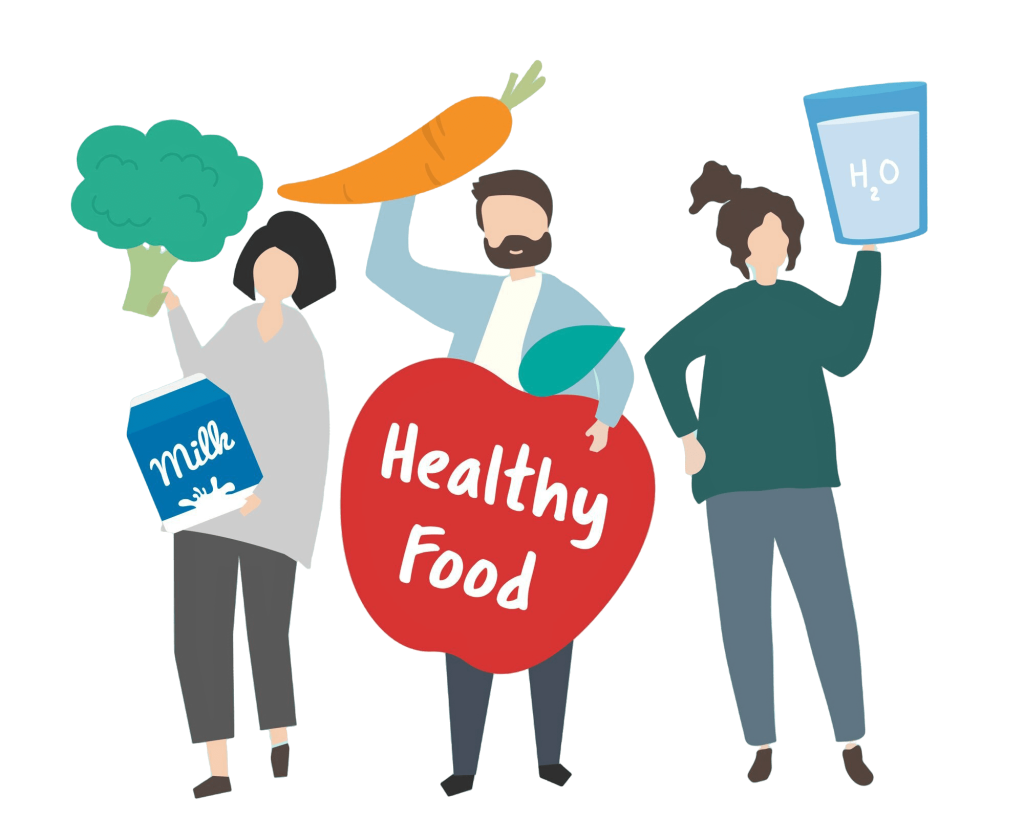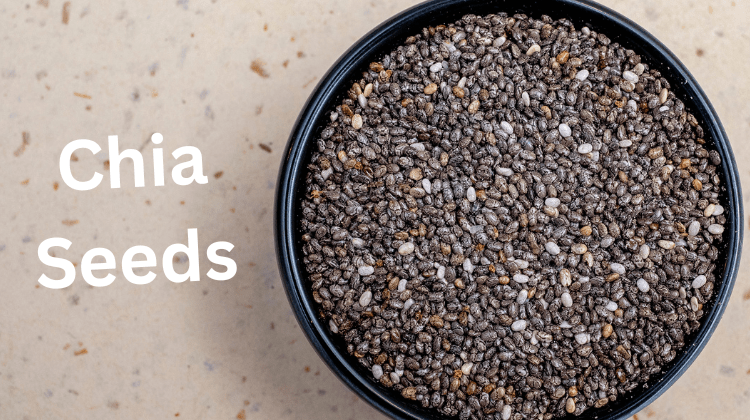Pumpkin seeds, also known as pepitas, are tiny but mighty seeds that have earned a big place in the world of nutrition. Packed with protein, healthy fats, fiber, and a powerhouse of minerals like magnesium, zinc, and iron, they are often referred to as a superfood. Unlike many trendy health foods, pumpkin seeds are simple, affordable, and easy to add to your daily meals.
What makes them special is their versatility and nutrient density. From supporting heart health to boosting immunity and even improving sleep quality, these seeds deliver a wide range of benefits in just a handful. Because of their crunchy texture and mild, nutty flavor, they’ve become a popular healthy snack choice worldwide.
As more people move toward natural and plant-based nutrition, pumpkin seeds are gaining recognition as a convenient way to fuel the body with essential nutrients while keeping snacks wholesome and satisfying.
What Are Pumpkin Seeds?
Pumpkin seeds are the edible seeds found inside pumpkins, protected by a white or cream-colored outer shell. Once the pumpkin is harvested, the seeds are scooped out, cleaned, and then either dried or roasted for consumption. These little seeds have been valued for centuries, not just as food but also for their medicinal and cultural significance.
When it comes to types, there are two common forms you’ll come across:
- Unshelled Pumpkin Seeds – These are the traditional seeds with their white outer shell intact. They’re often roasted and eaten as a crunchy snack, especially during seasonal festivals.
- Shelled Pumpkin Seeds (Pepitas) – Pepitas are the green, kernel-like seeds found inside the shell. They’re softer, easier to eat, and are commonly used in cooking, baking, and garnishing dishes.
Across cultures, pumpkin seeds have played an important role.
In Mexico, pepitas have been a staple in traditional dishes like mole sauces for centuries.
In Eastern Europe, roasted pumpkin seeds are a favorite snack during autumn and winter.
In traditional Chinese medicine, they have long been used to support bladder and digestive health. This widespread cultural use reflects their value as both a nutritious food and a natural remedy.
Nutritional Value of Pumpkin Seeds
Pumpkin seeds may be small, but their nutritional profile is impressive. They offer a balance of macronutrients and a wide variety of essential vitamins and minerals, making them a nutrient-dense addition to any diet.
Macronutrients in Pumpkin Seeds
- Protein: A single ounce (about 28 grams) of pumpkin seeds provides nearly 7 grams of plant-based protein, making them an excellent option for vegetarians and vegans looking to boost protein intake.
- Healthy Fats: Pumpkin seeds are rich in unsaturated fats, including omega-6 fatty acids, which support heart health. These fats help maintain healthy cholesterol levels and provide long-lasting energy.
- Fiber: The shell of pumpkin seeds contains plenty of fiber, supporting digestion and gut health. Even the shelled version (pepitas) contributes to daily fiber needs, helping with satiety and weight management.
Key Micronutrients
Pumpkin seeds are also packed with vital minerals and antioxidants, such as:
- Magnesium – Essential for muscle function, heart health, and stress regulation.
- Zinc – Supports immunity, skin health, and wound healing.
- Iron – Important for red blood cell production and preventing fatigue.
- Potassium – Helps balance fluids and supports healthy blood pressure.
- Antioxidants – Including vitamin E and carotenoids that fight free radicals and reduce inflammation.
Pumpkin Seeds vs. Other Popular Seeds
- Sunflower Seeds: Higher in vitamin E, but pumpkin seeds offer more protein and magnesium.
- Chia Seeds: Known for omega-3s and fiber, while pumpkin seeds provide more iron and zinc.
- Flaxseeds: Excellent for omega-3s and lignans, but lower in protein compared to pumpkin seeds.
This variety of nutrients makes pumpkin seeds stand out as a balanced superfood that complements other seeds in the diet.
A Powerful Plant-Based Protein Source
Because of their high protein content and rich amino acid profile, pumpkin seeds are a smart choice for those following vegetarian, vegan, or flexitarian diets. They can help meet daily protein needs without relying solely on animal sources, making them a staple in plant-based nutrition.
Health Benefits of Pumpkin Seeds
Pumpkin seeds aren’t just a tasty snack—they’re a true wellness powerhouse. Backed by research and traditional use, these seeds provide a wide range of benefits for the body and mind. Let’s explore their science-backed advantages:
1. Heart Health and Cholesterol Management
Pumpkin seeds are loaded with healthy fats, magnesium, and antioxidants, all of which support cardiovascular wellness. The unsaturated fats help reduce bad cholesterol (LDL) while promoting good cholesterol (HDL). Magnesium regulates blood pressure and supports proper heart rhythm, while antioxidants protect blood vessels from oxidative stress. Regular consumption may reduce the risk of heart disease and keep the circulatory system strong.
2. Immune System Booster
Rich in zinc and immune-supporting antioxidants, pumpkin seeds help the body defend against infections. Zinc plays a critical role in the production of white blood cells and supports wound healing. The combination of antioxidants and vitamin E further strengthens immunity by reducing inflammation and protecting against cellular damage.
3. Prostate and Men’s Health
Pumpkin seeds have long been linked to prostate health. Studies suggest that the zinc and phytosterols in pumpkin seeds may help reduce symptoms of an enlarged prostate (benign prostatic hyperplasia, or BPH). They’re also associated with improved urinary flow and overall male reproductive health, making them especially beneficial for men over 40.
4. Better Sleep and Stress Relief
If you struggle with sleep, pumpkin seeds may help. They are a natural source of tryptophan, an amino acid that the body converts into serotonin and then melatonin—hormones essential for good sleep. The high magnesium content also helps relax muscles, reduce stress, and improve sleep quality. Adding a handful of pumpkin seeds before bed can be a simple natural remedy for better rest.
5. Bone and Joint Health
Pumpkin seeds are a rich source of magnesium and phosphorus, two minerals essential for bone strength and density. Magnesium helps the body absorb calcium properly, while phosphorus supports joint function. Regular intake may lower the risk of osteoporosis and improve mobility as we age.
6. Skin and Hair Benefits
Thanks to antioxidants, vitamin E, and pumpkin seed oil, these seeds contribute to glowing skin and stronger hair. Vitamin E combats oxidative stress, preventing premature aging and supporting skin repair. Zinc and antioxidants promote scalp health and may even reduce hair thinning by nourishing hair follicles from within.
7. Weight Management and Digestion
Pumpkin seeds are high in fiber, which supports gut health and regular digestion. Fiber also creates a feeling of fullness, helping with appetite control and weight management. Because they’re nutrient-dense yet satisfying, pumpkin seeds make an excellent healthy snack that curbs cravings without excess calories.
Everyday Uses of Pumpkin Seeds
One of the best things about pumpkin seeds is how easy and versatile they are to include in daily life. You can enjoy them on their own or as part of your meals, they bring a healthy crunch and a boost of nutrients to your diet.
Snack Ideas
Roasted pumpkin seeds make a delicious, crunchy snack you can enjoy anytime. Simply toss raw seeds with a little olive oil and your favorite seasoning—like sea salt, paprika, or garlic powder—and roast them until golden. They’re a healthier alternative to chips or processed snacks, and perfect for on-the-go munching.
Adding to Meals
Pumpkin seeds can easily upgrade everyday dishes with both texture and nutrition. You can:
- Sprinkle them over smoothies and smoothie bowls for extra protein.
- Add to salads for a crunchy topping.
- Stir into soups as a garnish.
- Mix into oatmeal or yogurt bowls for a wholesome breakfast boost.
Their mild, nutty flavor pairs well with both sweet and savory meals.
Pumpkin Seed Oil
Extracted from the seeds, pumpkin seed oil is a versatile product with culinary and cosmetic uses. In cooking, it has a rich, nutty taste and is perfect for drizzling over salads, pasta, or roasted vegetables. Beyond the kitchen, it’s also used in skincare and haircare routines for its nourishing and antioxidant properties, helping with hydration, scalp health, and overall skin glow.
Baking and Cooking
Pumpkin seeds can take your baking to the next level. Add them into bread dough, energy bars, muffins, or granola mixes for an extra dose of crunch and nutrition. They blend seamlessly into savory recipes too—like sprinkling over roasted veggies or mixing into rice dishes for added texture.
How Much Pumpkin Seed Should You Eat Daily?
Like any nutrient-rich food, pumpkin seeds are best enjoyed in moderation. While they pack plenty of health benefits, they’re also calorie-dense due to their healthy fats, so knowing the right portion size is important.
Recommended Portion Size
Most nutrition experts recommend about 1 ounce (28–30 grams) of pumpkin seeds per day, which is roughly a small handful or around ¼ cup. This serving provides a good balance of protein, fiber, healthy fats, magnesium, zinc, and antioxidants—enough to support your health without going overboard on calories.
Tips for Balancing Intake
- Pair with other foods: Combine pumpkin seeds with fruits, yogurt, or salads to create a balanced snack.
- Watch the seasoning: Store-bought roasted seeds can be high in salt. Opt for unsalted or lightly seasoned varieties to keep sodium in check.
- Mix with other seeds/nuts: Blend with sunflower seeds, almonds, or chia seeds for variety and a broader nutrient profile.
- Mind the calories: Since 1 ounce contains about 150 calories, eating multiple handfuls can add up quickly if you’re managing weight.
- Go for variety: Instead of eating only pumpkin seeds daily, rotate them with other seeds (flax, chia, sesame) for a more diverse nutrient intake.
Possible Side Effects and Precautions
Pumpkin seeds are generally safe and healthy for most people, but like any food, moderation is key. Eating too many can cause minor issues, and certain individuals may need to be cautious.
Overconsumption Concerns
Pumpkin seeds are calorie-dense because of their healthy fats. While a small handful (about 1 ounce/28 grams) is a perfect daily serving, eating multiple handfuls regularly can lead to excess calorie intake and potential weight gain.
They’re also a good source of fiber. While fiber is great for digestion, eating too many pumpkin seeds at once may cause bloating, gas, or mild stomach discomfort, especially if the seeds are consumed with their shells.
Allergies and Sensitivities
Although rare, some people may have seed or nut allergies that extend to pumpkin seeds. Symptoms can include itching, rashes, swelling, or difficulty breathing. Anyone with a known seed allergy should consult a doctor before including pumpkin seeds in their diet.
Who Should Limit Intake?
- People on low-calorie diets: Should monitor portion sizes since pumpkin seeds are energy-dense.
- Individuals with digestive issues: Eating seeds with shells can irritate the stomach or cause constipation for sensitive individuals.
- Those with kidney or bladder concerns: Pumpkin seeds contain oxalates, which in excess may contribute to kidney stones in predisposed individuals.
In most cases, pumpkin seeds are perfectly safe when eaten in recommended amounts. Being mindful of serving size and personal sensitivities ensures you can enjoy their benefits without unwanted side effects.
Conclusion
Pumpkin seeds may be small, but their nutritional value and health benefits are anything but tiny. Packed with protein, healthy fats, fiber, and essential minerals like magnesium, zinc, and iron, they truly deserve their reputation as a superfood. From supporting heart and prostate health to boosting immunity, improving sleep, and promoting healthy skin and hair, these versatile seeds offer a natural way to enhance overall wellness.
What makes pumpkin seeds even more appealing is their simplicity and versatility. You don’t need complicated recipes to enjoy their goodness—a small handful as a snack, a sprinkle on your morning oatmeal, or a dash of pumpkin seed oil over your salad is enough to make a difference.
By incorporating pumpkin seeds into your daily routine, you can nourish your body with essential nutrients while enjoying a crunchy, satisfying addition to your meals. So the next time you’re looking for a wholesome snack or an easy way to boost your diet, reach for pumpkin seeds—they’re proof that big health benefits can come from the smallest foods.
FAQs About Pumpkin Seeds
Are pumpkin seeds healthier raw or roasted?
Both raw and roasted pumpkin seeds are nutritious, but raw seeds retain slightly more antioxidants and healthy fats since roasting at high heat can reduce some nutrients. However, lightly roasted pumpkin seeds are still very healthy and often more enjoyable due to their crunch and flavor.
Can pumpkin seeds help with hair loss?
Yes, pumpkin seeds may support hair health and growth. They contain zinc, vitamin E, and antioxidants, which nourish the scalp and strengthen hair follicles. Pumpkin seed oil has also been studied for its potential to reduce hair thinning in men.
Are pumpkin seeds safe during pregnancy?
Pumpkin seeds are generally safe and beneficial during pregnancy. They provide iron, magnesium, protein, and healthy fats, all of which support the mother’s and baby’s health. However, moderation is key, and it’s best to avoid salted or heavily spiced varieties.
Do pumpkin seeds lower blood sugar?
Yes, studies suggest that pumpkin seeds may help regulate blood sugar levels due to their high magnesium and antioxidant content. They can be a smart snack for people managing diabetes when eaten in controlled portions.
Can kids eat pumpkin seeds safely?
Absolutely. Pumpkin seeds are a nutrient-rich snack for children, offering protein, healthy fats, and minerals important for growth. For younger kids, it’s best to serve shelled (pepitas) or ground pumpkin seeds to reduce choking risks.
Can pumpkin seeds increase sperm count?
Yes, pumpkin seeds are rich in zinc, which is essential for male reproductive health. Adequate zinc intake supports sperm quality, motility, and overall fertility, making pumpkin seeds a natural addition for men’s wellness.
What is the best time to eat pumpkin seeds?
You can enjoy pumpkin seeds at any time of the day. For specific benefits:
Morning: As a protein-rich snack to kickstart your energy.
Afternoon: To curb cravings and boost focus.
Evening/Before Bed: A handful may help with better sleep, thanks to tryptophan and magnesium.



